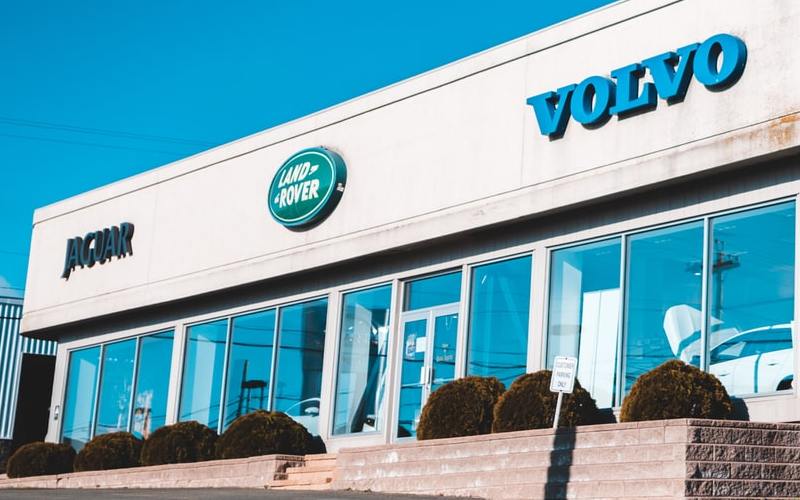The business car loan environment can be competitive, so it often it pays to keep an eye on different rates in the market. Because chances are, you could be paying more than you need to - this is where refinancing comes in.
Refinancing your business car loan could put you on the fast-track to lowering your repayments and paying off your loan sooner.
In this article, we’ll take you through the step-by-step refinancing process, why it can be advantageous, and the costs you may incur.
How does refinancing work?
To refinance your business car loan simply means to take out a new loan to replace your current loan. You then continue to make repayments to your new lender over time.
Businesses typically refinance car loans to access more favourable terms such as lower interest rates, lower fees, or greater flexibility.
A business car loan is usually secured, meaning the vehicle is put up as collateral for the loan. If you fail to make your repayments, the lender can repossess the vehicle to recoup the costs. This is known as a ‘chattel mortgage.’
How do you refinance a business car loan?
1. Decide whether you need to refinance
Check how much interest you are paying on your current business car loan and determine whether refinancing can you some money.
Also consider the loan's current arrangements - does it include all the features you’re after? Are the annual fees too high? And is refinancing worthwhile to your business?
2. Compare options in the market
Conduct some thorough research on different business car loan products and lenders before committing to the refinance. There are a variety of lenders to choose from, so don’t apply with the first one that comes across your screen - it may not be the best deal out there.
3. Gather the required documents and apply for the loan
Once you’ve chosen your lender and loan product, you can commence the application process.
Detailed documentation is usually required before you can refinance your business car loan. This can include:
-
Current loan contract and most recent statement - indicates the term of the loan, interest rate, how much is owing, and if there is a balloon payment.
-
Identification - driver’s licence, birth certificate, etc.
-
Australian Business Number (ABN).
-
Business financial statements - determines whether your business is making enough profit to afford the vehicle (balance sheet, profit and loss statement).
-
Individual tax returns for all business directors.
-
Information from ATO portal - shows how much tax debt you owe the government.
-
Credit rating.
-
Proof the business is GST registered.
-
Personal statement of position (required for each business director if there is more than one).
-
Proof of vehicle insurance.
4. Receive an outcome
From there, a lender will provide a quote based on the information provided above. If you are happy to proceed, the lender will assess the business and servicing of the loan. And assuming the documents are given the green light, your application will then be put forward to the credit team for a secondary assessment.
Once approved, the letter of offer will be sent through which you can sign and return.
5. Settlement
Shortly after approval, you will receive your funds which you can use to settle your previous loan obligations and begin your repayment schedule with your new lender.
What are the benefits to refinancing a business car loan?
Save on fees
Your current business car loan may be charging you unwanted fees or high ongoing fees. Refinancing may allow you to change to a lower fee loan with another lender, saving you some well-earned cash.
Competitive interest rates
Arguably, the most common and clear benefit of refinancing a business car loan is to access a lower interest rate. Lenders often offer competitive and flexible loan products, so it’s not uncommon to find a better deal on a business car loan while you’re repaying your current loan debt.
You may find that if your business' financial situation has changed, and your credit score has improved, you may be in a position to lock in a lower rate. This is particularly relevant if you took out a car loan when your business was in its infancy.
If you manage to lock in a lower interest rate, your total loan repayments will reduce, allowing you to free up additional funds for other parts of the business.
Accessing additional features
Different lenders offer different business car loan features. You may wish to refinance to access a loan that allows you to make additional repayments without penalty. Whatever the case, refinancing allows you to shop around and find a loan that suits both your business and personal needs.
What costs are involved in refinancing a business car loan?
Unfortunately, refinancing your business car loan can come at a cost.
Depending on your circumstances and who your existing lender is, you could incur additional fees and charges, so be sure to take these into account before taking the refinancing leap.
-
Exit/break fees - You may need to pay a break fee to your old lender.
-
Application fees - Also known as an establishment fee for your new loan.
-
Valuation fees - Your business vehicle may need to be professionally valued to determine its current worth.
Image by freepik



 Denise Raward
Denise Raward
 Harry O'Sullivan
Harry O'Sullivan

 Hanan Dervisevic
Hanan Dervisevic


